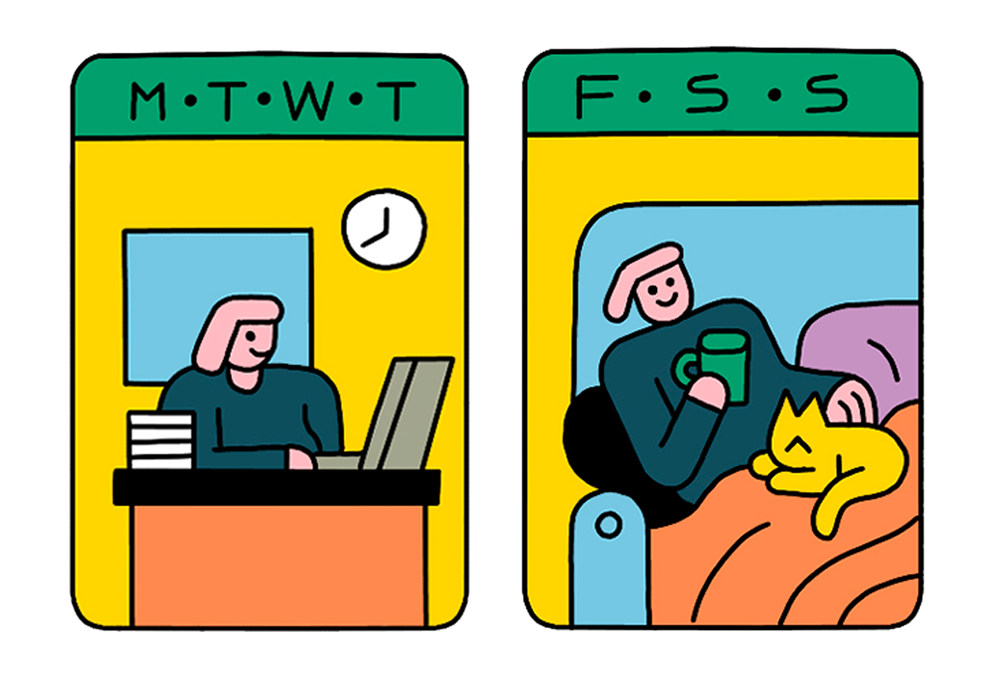How to Improve Your Company’s Glassdoor Rating

At the beginning of this year, Fresh Tracks Canada had a 2.1 (out of 5) rating on the anonymous review site Glassdoor, meaning most employees reported feeling “dissatisfied” working at the company. By late November, the Vancouver-based tour operator had improved it to 4.6, becoming the top-rated Canadian travel company on the employer-rating platform.
How did they do it? By treating their Glassdoor rating not as an isolated problem to be solved, but a symptom of deeper issues that needed to be tackled head on. “For me, it was more about a need for a cultural transformation,” says Sushant Trivedi, Fresh Tracks Canada’s CEO. “The Glassdoor rating was just a reflection of that.”
Trivedi, who came onboard in January, first came across the negative reviews when he visited the company’s Glassdoor page himself, doing the typical due diligence many of us do when we’re entertaining a job offer. A post from June 2021 said “Even after expressing severe burn out, nothing was done to support those who have worked so hard on keeping the company alive in a pandemic.” (It was accompanied by a 1 star rating, the lowest you can give.) Another, posted a month earlier, warned “stay away” and blamed management for “doing a good job of ensuring the company is non-existent by December.”
“Travel is inherently a human business, and FreshTracks prides itself on being a human-centric company—but it was evident that what was being serviced to the outside world wasn’t being serviced inside the organization,” says Trivedi. Employees were feeling overworked and unappreciated.
When Trivedi joined the company, Fresh Tracks was emerging from what he calls “the existential crisis of Covid.” Restrictions and closures meant bookings were down by 50 per cent, and as a result Fresh Books had to reduce their headcount by about 40 per cent. Trivedi brought on help to turn things around post-pandemic and knew that those Glassdoor ratings and comments would be crucial data points as he worked to transform the company’s culture into a place where every employee felt like they had an impact on the company’s success.
It was no small task. One of the first changes was simple but meaningful: He renamed the “people and culture” department to “people operations” in order to create a greater sense of collective responsibility for culture within the company. “I don’t believe culture should rest in the hands of one individual or team,” says Trivedi. So he flattened the leadership structure, and moved autonomy over decisions and budgets down to individual teams to manage. “Rather than top-down, I made it a bottom-up company,” he says. “Everyone now has more empowerment and a greater sense of ownership.” This, he says, has helped bridge a perceived distance between leadership and employees on the ground—reflected in the fact that “management” hasn’t been called out negatively on Glassdoor since the changes were made.
Key to all of this is what Trivedi calls “creating an environment of psychological safety,” which means creating the kind of place where an employee can call out the good and the bad without fear of repercussion, and with a sense that it’s actually going to be taken seriously. The summer was a chaotic time to be in travel—pent-up demand, delays everywhere, an acute labour shortage—and it was challenging, to say the least, for Fresh Tracks’ teams to navigate. So Trivedi made sure that every meeting included time for him to ask “what does help look like?” so he could provide practical solutions to whatever staff were struggling with. “Every Thursday, the operations team and I sat and ate lunch together, taking the time to connect and chat through pain points,” he says. “And that collaboration actually wound up contributing to a double-digits increase in repeat business compared to pre-pandemic levels.”
While there are all kinds of guides on the internet about how to improve your Glassdoor rating, touting hacks like asking your employees to leave nice reviews to re-balance the rating algorithm, Trivedi never once entertained those. “With the amount of effort it takes to go and convince someone to write a review, you could take that time, energy and resources to understand the problems and collectively find solutions,” he says. “You will actually drive organizational results, and the Glassdoor numbers will follow.”
And while the negative reviews can feel like they’re the most important, Trivedi believes the positive reviews can be just as useful. “Sometimes figuring out what you’re doing well, and doubling down on that, has a far greater impact than being obsessed with solving problems,” he says. “Because we were able to monitor, learn and act, it really helped us to start a positive flywheel.”
And it was forward momentum that benefited more than just their Glassdoor rating. This year, Fresh Tracks grew from 50 to 100 employees and, thanks in part to its culture of open communication and collaborative teamwork, didn’t struggle with hiring like many other companies. They’ve booked their highest number of travellers ever this year, and are on track for record revenue in 2022.
“Anyone who looks at employee health and happiness as an independent part of the business will never find sustainable growth,” concludes Trivedi. “Making Fresh Tracks a rewarding place to work is part of our corporate strategy. It’s inherently baked into every single thing.”










